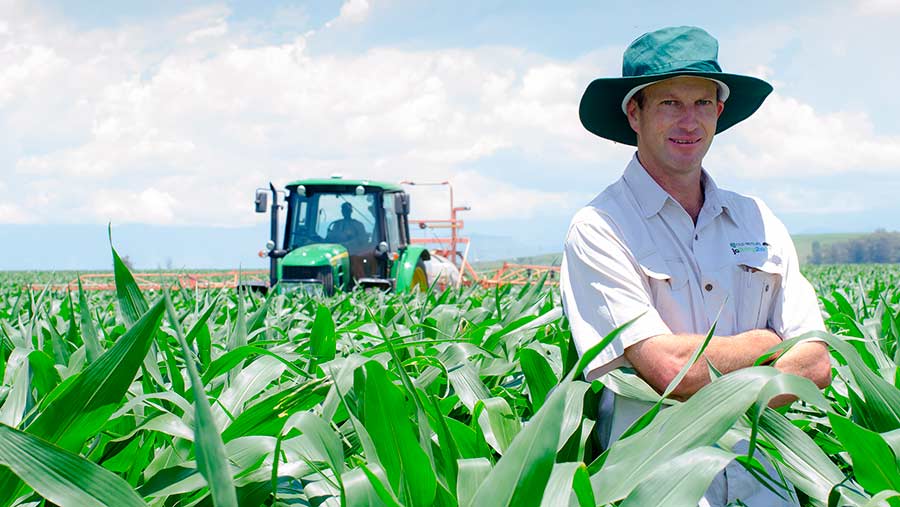Farmer Focus: Subsidy loss helped efficient farmers thrive
 Bruce Shepherd © Karen Edwards
Bruce Shepherd © Karen Edwards The recent British EU referendum result made me reflect on a past South African election and the massive changes the results of that election brought to South African agriculture.
In 1994 South Africa held its first truly democratic election. For the first time all South Africans could play a role in the policies for the country going forward.
The pre-1994 government was very sympathetic towards farmers. Many of the leaders were of farming stock and a large portion of that electorate were farmers.
See also: Read more from our Arable Farmer Focus writers
The government of that era controlled all trading of most agricultural commodities through boards. The maize board, for example, controlled a single-channel, fixed-pricing system.
The minister of agriculture would fix both the producer and consumer price for maize for that season. All maize had to be sold through the board at that predetermined price.
If you wanted to sell maize to your neighbour you had to pay a levy to the maize board, which basically precluded the transaction.
The reason for these boards was to help the farmer through price stability in the market place. The government was also happy to provide safety nets where necessary. Being a largely arid country, drought relief was not uncommon.
Post-1994 there was a complete reversal of these policies. To put it kindly, the new government has very little sympathy for farmers.
All subsidies and safety nets were unceremoniously disbanded. As for the marketing of our commodities, we were left to the wolves of the free market. So what happened next? We thrived!
The system that was put in place to provide stability basically meant that the better, more progressive farmers were subsidising the weaker farmers, in effect negating their advantage.
In the new free-market system, the more efficient farmers quickly engulfed less progressive farmers. Many of these better farmers started with very little, but they were progressive, efficient and hard-working.
I am not qualified to have an opinion about how the Brexit vote will affect the British farmer, but I do know those who are efficient and progressive will thrive.
Bruce Shepherd farms in KwaZulu-Natal, South Africa. He plants 320ha of rain-fed summer crops. He also runs 2,200 weaner oxen on pastures, finishing them in a feedlot with maize grown on the farm.
